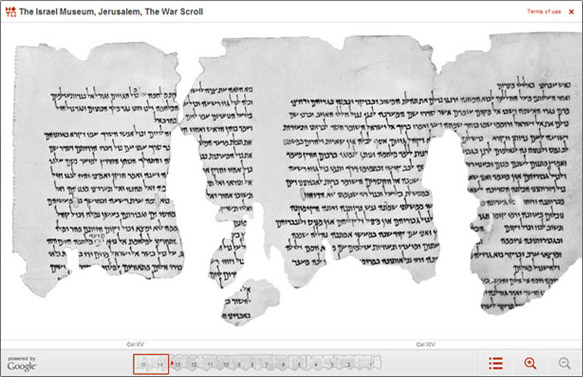The War Scroll
The War Scroll
Click to examine the scroll.
The War of the Sons of Light against the Sons of Darkness Scroll (1QM) •
Qumran, Cave 1 •
1st century BCE - 1st century CE •
Parchment •
H: 15-16; L: 279 cm •
The Hebrew University of Jerusalem •
Accession number: 96.84/210
Against the backdrop of a long biblical tradition concerning a final war at the End of Days (Ezekiel 38–39; Daniel 7–12), this scroll describes a seven stage, dualistic confrontation between the "Sons of Light" (the term used by Community members to refer to themselves), under the leadership of the "Prince of Light" (also called Michael, the Archangel) – and the "Sons of Darkness" (a nickname for the enemies of the Community, Jews and non-Jews alike), aided by a nation called the Kittim (Romans?), headed by Belial. The confrontation would last 49 years, terminating in the victory of the "Sons of Light" and the restoration of the Temple service and sacrifices. The War Scroll describes battle arrays, weaponry, the ages of the participants, and military maneuvers, recalling Hellenistic and Roman military manuals.
This work is not, strictly speaking, an apocalypse (namely, a heavenly revelation), and it lacks a "messianic" figure. Certain details, such as the advanced age of the combatants and the leadership of the priests, point to the idealistic nature of the war described in the work and impart a fictional quality to the treatise. Nonetheless, the War Scroll may indeed reflect genuine political tension in Judea between Romans and Jews, which would culminate in the outbreak of revolt in 66 CE. The scroll also sheds light on the New Testament Book of Revelation, in which a final war is also described between earthly and heavenly forces.

No comments:
Post a Comment